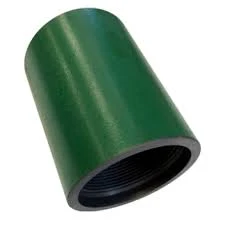- Afrikaans
- Albanian
- Amharic
- Arabic
- Armenian
- Azerbaijani
- Basque
- Belarusian
- Bengali
- Bosnian
- Bulgarian
- Catalan
- Cebuano
- Corsican
- Croatian
- Czech
- Danish
- Dutch
- English
- Esperanto
- Estonian
- Finnish
- French
- Frisian
- Galician
- Georgian
- German
- Greek
- Gujarati
- Haitian Creole
- hausa
- hawaiian
- Hebrew
- Hindi
- Miao
- Hungarian
- Icelandic
- igbo
- Indonesian
- irish
- Italian
- Japanese
- Javanese
- Kannada
- kazakh
- Khmer
- Rwandese
- Korean
- Kurdish
- Kyrgyz
- Lao
- Latin
- Latvian
- Lithuanian
- Luxembourgish
- Macedonian
- Malgashi
- Malay
- Malayalam
- Maltese
- Maori
- Marathi
- Mongolian
- Myanmar
- Nepali
- Norwegian
- Norwegian
- Occitan
- Pashto
- Persian
- Polish
- Portuguese
- Punjabi
- Romanian
- Russian
- Samoan
- Scottish Gaelic
- Serbian
- Sesotho
- Shona
- Sindhi
- Sinhala
- Slovak
- Slovenian
- Somali
- Spanish
- Sundanese
- Swahili
- Swedish
- Tagalog
- Tajik
- Tamil
- Tatar
- Telugu
- Thai
- Turkish
- Turkmen
- Ukrainian
- Urdu
- Uighur
- Uzbek
- Vietnamese
- Welsh
- Bantu
- Yiddish
- Yoruba
- Zulu
Exploring the Benefits of Teflon Couplings in Modern Industrial Applications
The Importance of Teflon Couplings in Modern Engineering
In the world of engineering and industrial applications, coupling systems play a crucial role in connecting various components, transferring torque, and ensuring smooth operation of machinery. Among the various types of couplings, Teflon couplings have gained significant popularity due to their unique properties and advantages. This article explores the significance of Teflon couplings, their applications, and the benefits they offer in modern engineering.
What are Teflon Couplings?
Teflon, a brand name for polytetrafluoroethylene (PTFE), is a high-performance plastic known for its non-stick properties, chemical resistance, and excellent thermal stability. Teflon couplings integrate this versatile material into coupling systems, allowing for seamless connections in various industrial and engineering applications. They are frequently utilized in scenarios where other materials may succumb to wear, chemical degradation, or temperature fluctuations.
Applications of Teflon Couplings
Teflon couplings find applications across a wide range of industries
. Some of the most noteworthy include1. Chemical Processing In industries where chemicals are processed, Teflon couplings are favored due to their resistance to a broad spectrum of chemicals, including acids, bases, and solvents. This renders them an ideal choice for connecting pumps and valves in chemical plants, where traditional materials might pose risks of corrosion and contamination.
2. Food and Beverage With strict hygiene requirements, the food and beverage industry relies heavily on Teflon couplings. Because Teflon is FDA-approved for food contact, it ensures that the products remain pure and uncontaminated during processing. Additionally, the material’s non-stick properties reduce the likelihood of product build-up.
3. Pharmaceuticals Similar to food processing, pharmaceuticals demand high purity standards. Teflon couplings, resistant to bacteria and easy to clean, are particularly useful in the manufacture of pharmaceuticals, ensuring that all equipment maintains sanitary conditions.
4. Automotive Industry Teflon couplings are also utilized in the automotive sector for various applications, including connection systems within engines and fuel systems, due to their ability to withstand harsh conditions and temperatures, thus ensuring reliable performance.
teflon coupling

5. Aerospace In the aerospace industry, where materials are exposed to extreme conditions, Teflon couplings offer lightweight and robust solutions that enhance the overall efficiency and reliability of aircraft systems.
Benefits of Teflon Couplings
The advantages of Teflon couplings are manifold, making them a preferred choice in many industrial applications
1. Chemical Resistance As mentioned earlier, Teflon's chemical inertness makes it ideal for a variety of aggressive substances. This property extends the lifespan of coupling systems and minimizes maintenance needs, reducing downtime in operations.
2. Low-friction Properties The non-stick characteristics of Teflon contribute to lower friction during operation, which leads to smoother functioning of connected components. This reduces wear and tear, thus enhancing the lifespan of machinery.
3. Temperature Tolerance Teflon couplings can withstand a wide range of temperatures, from extreme lows to elevated highs. This thermal stability is crucial in applications where temperature fluctuations are common, ensuring reliable performance across different environments.
4. Ease of Installation Teflon couplings are often lightweight and designed for quick installation, making them an efficient choice for engineers looking to streamline assembly processes.
5. Reduced Noise and Vibration The damping properties of Teflon can help reduce noise and vibration in machinery, leading to quieter operations and improved working conditions.
Conclusion
In conclusion, Teflon couplings serve as an indispensable component in modern engineering across various industries. Their unique properties—such as chemical resistance, low friction, temperature tolerance, and ease of installation—make them ideal for a wide array of applications ranging from chemical processing to aerospace. As industries evolve and the demand for high-performance materials continues to grow, Teflon couplings will undoubtedly remain at the forefront, contributing to enhanced efficiency and reliability in engineering systems. As we move toward increasingly complex industrial challenges, the role of Teflon couplings will only continue to expand, paving the way for innovative solutions in the world of engineering.
-
Well Casing Extension Couplings – Applications and InstallationNewsJun.06,2025
-
Types of Crossover Subs in Drilling & CompletionNewsJun.06,2025
-
Key Features of High-Quality Tubing Pup JointsNewsJun.06,2025
-
Installation and Maintenance Tips for Steel Couplings for PipeNewsJun.06,2025
-
How to Select the Right Pup Joint for Oil & Gas OperationsNewsJun.06,2025
-
Applications of Stainless Steel Pipe CouplingsNewsJun.06,2025







